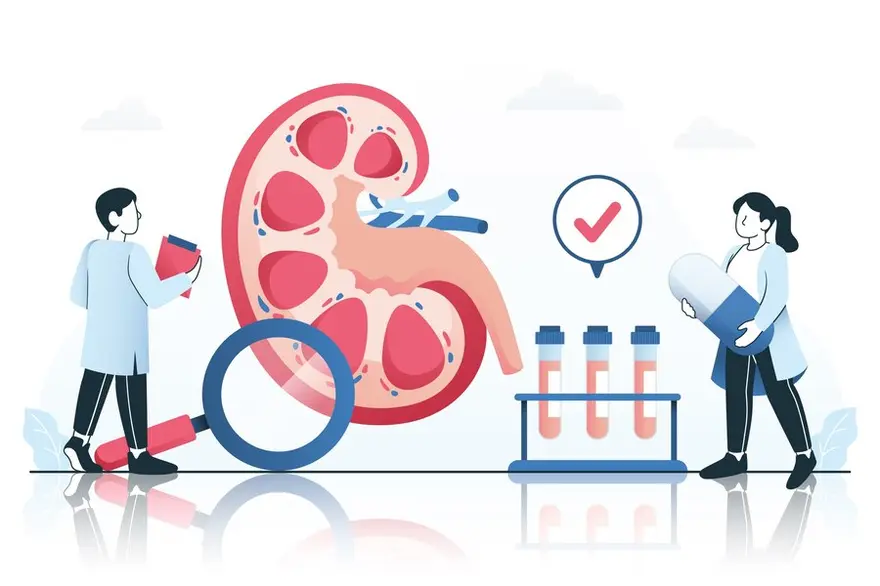Lifestyle
Do Some Food Items Make You Go Tingly and Itchy? It Can be a Food Allergy
16307 Views
0

That itchiness on your body after eating could be telling you something
Some people often find themselves having certain digestive problems, swollen faces, itching, and rashes after consuming a certain kind of food; this is mainly because their immune system reacts to certain kinds of food. Food allergy is basically the immune system reacting adversely as soon as you eat a certain kind of food.
Even a tiny bite of any of these allergy-causing food items can trigger mild to severe symptoms, in certain cases; this could even lead to anaphylaxis, a life-threatening reaction to allergic food consumed. The immune system mistakenly identifies certain components or proteins in the food as harmful to consume and releases effective measures accordingly, like chemicals such as histamine that causes inflammation.
Check with a simple test if you could be allergic to certain foods
Some people often confuse a simple food allergy with food intolerance, which is a more commonly seen reaction to food items, but it, in no way, involves or affects the immune system and is a far less serious condition.
Food intolerance can simply be detected with a health test. Book here.
Particularly speaking of the Indian territory, there are low cases and incidences of allergy roughly up to 3% owing to the strong Indian genes that shield us from asthma, eczema, and other allergic sniffles. Talking about the western culture, food allergies affect almost 4% of adults and nearly 5% of children in the United States.
Common signs and symptoms include:
- Itching
- Swelling around the lips, face, and mouth
- Nasal congestion
- Stomach upset, vomiting, diarrhea
- Dizziness or light-headedness
- Blood pressure drop
- Rashes or hives
- Tingling sensation in the mouth
While these symptoms can range from mild to severe, these are some of the most common ones to watch out for. They affect every person differently, for some it may be an instant reaction, but for some, it might even take a few hours, similarly, for some, it might just be an uncomfortable feeling, but for others, it might be severe as to a life-threatening situation.
Triggering food, to be careful around:
- Eggs
- Fish
- Wheat
- Milk
- Peanuts
- Soybeans
- Nuts
- Sea food (lobster, shrimps etc.)
These account for the eight most common food allergy-causing items. However, there are certain other items as well that could lead to adverse reactions, these include:
- Garlic
- Fruits like banana, peach kiwi
- Sesame seed
- Avocado
- Coffee
- Chamomile etc..
Are there any tests for diagnosing food allergies?
Yes! If you notice any of these symptoms then, it is best to take the advice of a food allergist or refer a doctor for the same. They will carry out some tests, such as
- Dietary review, to see what and when you have eaten.
- Skin prick test, to prick a needle with a tiny amount of suspected food to monitor any reaction. If you get a red, itchy bump at the injection site, it usually means you are allergic to the food.
- Blood test, to look for the presence of antibodies, specific to protein, to indicate any allergy present. This test checks for substances called IgE antibodies in the blood. IgE antibodies are made in the immune system when you are exposed to an allergy-causing substance.
- There is another method, which can help understand if a person really has any food allergy, where a physician checks and supervises in a closed environment, by giving the person suspected food allergen in gradually increasing quantities to monitor and chalk out the possibility of psychological reaction to food. This is also called the Oral challenge test. Your allergist will provide immediate treatment if there is a reaction.
Understand, if you are at risk!
You may be more prone to food allergies if you have a family history of asthma, eczema, hives, hay fever, etc. If you are allergic to certain kinds of food already, there are high chances and risk of you developing an allergy to some other similar food as well. They are more common in children, but with age, some of them outgrow these, while kids who suffer from nuts or specific sea food allergies, might have them lifelong as well.
How to treat food allergies?
- Once you develop an allergy to a certain food item (it can be a spice, a condiment too!), the safest option is to avoid it.
- Be careful and aware about what you are eating and drinking
- Carry emergency epinephrine, if you are at risk.
- Oral immunotherapy is when the affected person is given an increasing amount of the allergen so that the body gets used to it, and thereby increasing the threshold of adversity. Eg:- Palforzia for peanut allergy.
- Epicutaneous immunotherapy, similar to oral immunotherapy, is when a protein from a certain allergic food is delivered through a skin patch. The patch is replaced daily with increasingly larger amounts of protein.
- Notify in advance at restaurants or cafes if you have any food allergy, the staff members even ask and at times the menu explicitly mentions notifying them of the same, so don’t be reluctant here.
While being careful and agile is the only way out for most situations, certain changes in the lifestyle can also go a long way in taking care of your food allergies. If you wish to continue enjoying your favorite food, preheating and then cooling food at times help remove the protein causing allergy, peeling fruits before eating them, so that they get rid of the peel-containing proteins. Little precautions, awareness, and smartness, can let you enjoy your taste buds.
 Home Visit
Home Visit Upload
Upload














1701259759.webp)









 WhatsApp
WhatsApp